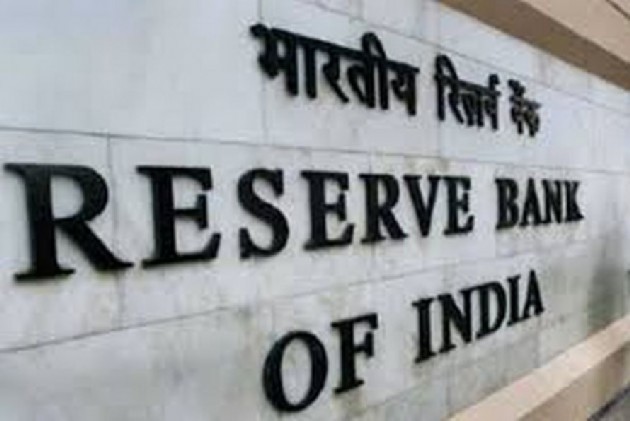Mumbai: The Rs 1.76 lakh crore RBI surplus transfer to the government may give limited relief while risk to the fiscal remains on account of the expected shortfall in Goods and Services Tax (GST) revenues and also possible slump in direct tax revenues, broking house Kotak Equities has said.
“Based on the Jalan Committee’s recommendation, the RBI will transfer Rs 52,600 crore as per the revised ECF. This is in addition to the surplus transfer of Rs 1.23 trillion (including Rs 28,000 crore of interim dividend for FY2019) in FY2020. The government will gain around Rs 58,000 crore from the RBI compared to FY2020 budget estimates.
This will help to some extent in bridging an estimated Rs 1.5 trillion of shortfall in GST revenues even as the fiscal continues to be strained due to weak tax revenues,” Kotak said.
The key recommendation of the Jalan panel include a clearer distinction between the two components of economic capital (realized equity and revaluation balances) to distinguish between usage of retained earnings for meeting risks/losses, and unrealized valuation gains acting as risk buffers, Contingent Risk Buffer (CRB) or risk provisioning made from retained earnings would be maintained at 5.5-6.5% of balance sheet, and entire net income will be transferred to government only if CRB is at least above 5.5% and subject to RBI’s Central Board approval if between 5.5-6.5%. Based on these recommendations, the Central Board approved a surplus transfer of Rs1.23 tn and Rs526 bn (with CRB at 5.5% against Rs116 bn with CRB at 6.5%) as excess provision transfer.
“Based on the Jalan Committee’s recommendation, the RBI will transfer Rs 52,600 crore as per the revised ECF (Economic Capital Framework). This is in addition to the surplus transfer of Rs 1.23 trillion (including Rs 28,000 crore of interim dividend for FY2019) in FY2020,” said a Kotak Equities report.
“The government will gain around Rs 58,000 crore from the RBI compared to FY2020 budget estimates. This will help to some extent in bridging an estimated Rs 1.5 trillion of shortfall in GST revenues even as the fiscal continues to be strained due to weak tax revenues.” If direct taxes disappoint, too, fiscal pressures will intensify (amidst slowing growth). While the initial reading could be positive for GSec, fiscal slippage risks will continue to weigh on yields, it said.
The Kotak report said the 2019-20 Budget had assumed an RBI dividend of Rs 90,000 crore and RBI transferred Rs 1.23 lakh crore, including Rs 28,000 crore of interim dividend in 2018-19. The government will receive Rs 95,400 crore as dividend for the current fiscal, assuming no interim dividend is announced.
According to Kotak, optically, the excess provision transfer of Rs 52,300 crore, as well as the Rs 54,000 crore of higher dividend, will seem positive for bonds. “The market, however, was expecting a transfer of around Rs 1.5-2 trillion though we have firmly believed that a large transfer would be unlikely,” Kotak said.
“Fiscal slippage risks remain given our estimated shortfall of around Rs 1.5 trillion in GST revenues and around Rs 95,000 crore in net tax revenues. If direct taxes disappoint too, fiscal pressures will intensify (amidst slowing growth). While the initial reading could be positive for GSec, fiscal slippage risks will continue to weigh on yields,” it added.
IDFC AMC Head (Fixed Income) Suyash Choudhary said that from a budget standpoint, the extra “windfall” owing to the Jalan committee is Rs 58,000 crore.
“Given the expected revenue shortfalls in a slowing economy and especially vis-a-vis the aggressive assumptions in the budget, it would be prudent to keep this amount in order to meet the budget numbers more credibly,” Choudhary said.
Some foreign broking houses have said that the RBI windfall would be used to achieve the fiscal deficit target. Nomura said: “RBI’s high net income in 2018-19 ease the fiscal pressures and dividend transfer will help the government achieve 3.3 per cent fisc deficit target. Bimal Jalan committee suggests a conservative Economic Capital Framework.”
Morgan Stanley was of the view that the “government could intend to use the enhanced transfer to help meet the fiscal deficit. Enhanced transfer to aid fiscal flexibility.”
This global analyst firm, however, did not see much possibility of a big fiscal stimulus. “Government is likely to continue its calibrated response and a big fiscal stimulus is still a low probability”, Morgan Stanley said.
Credit Suisse said the transfer will mostly be used to offset weak tax collections.
Citi said the methodology suggested by the Jalan committee rules out any such large transfers from the RBI in the next few years. It said the windfall for government could be higher if it decides to ask for another interim dividend in the fourth quarter.
The trend for the future years will depend on the available contingency risk buffer, Citi added.
